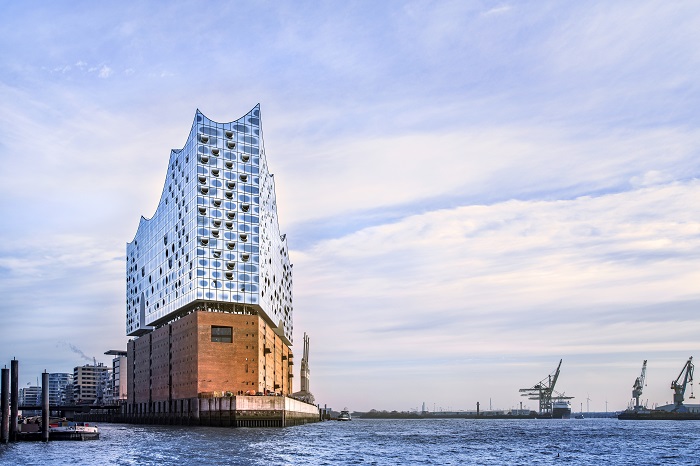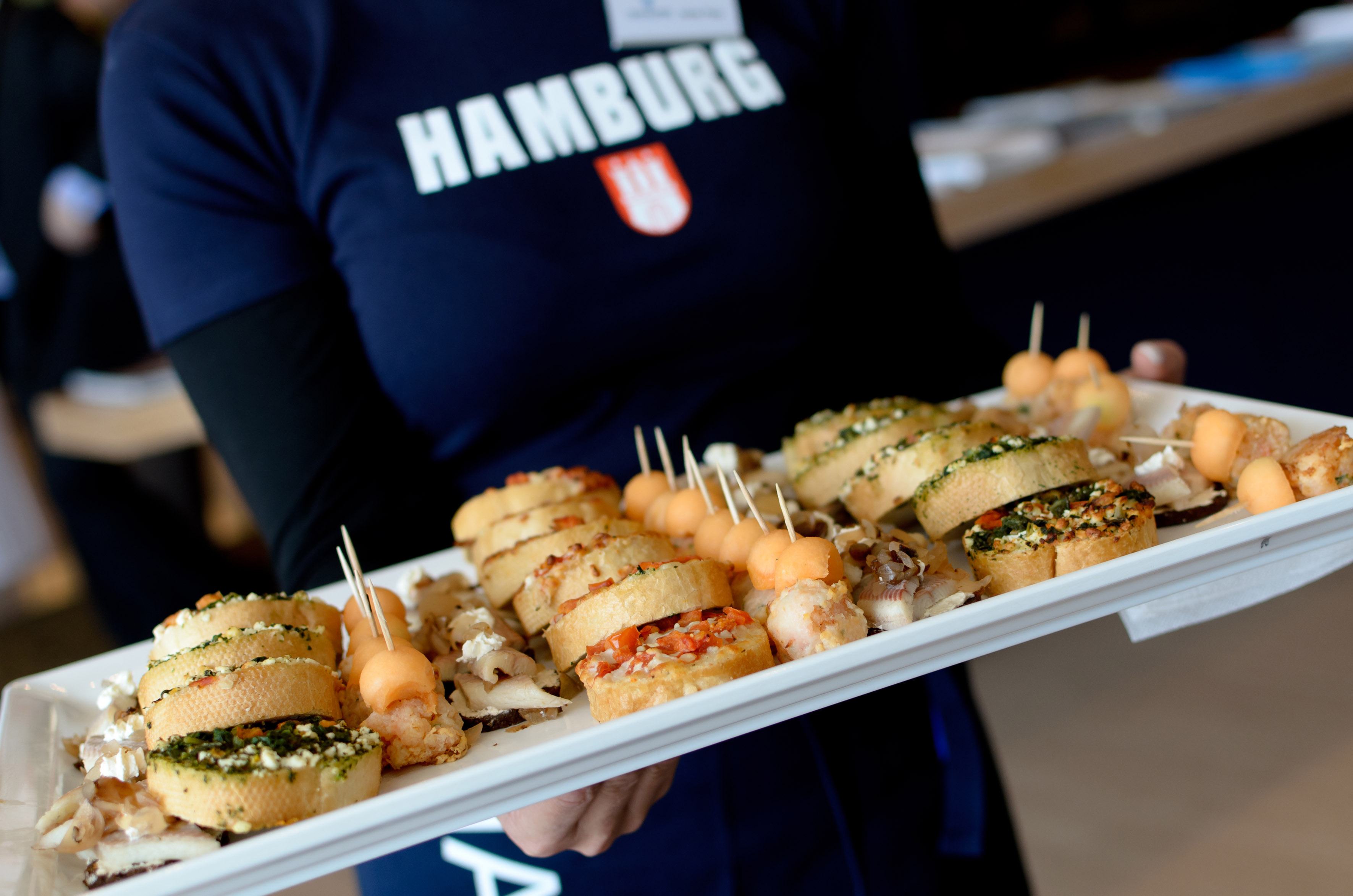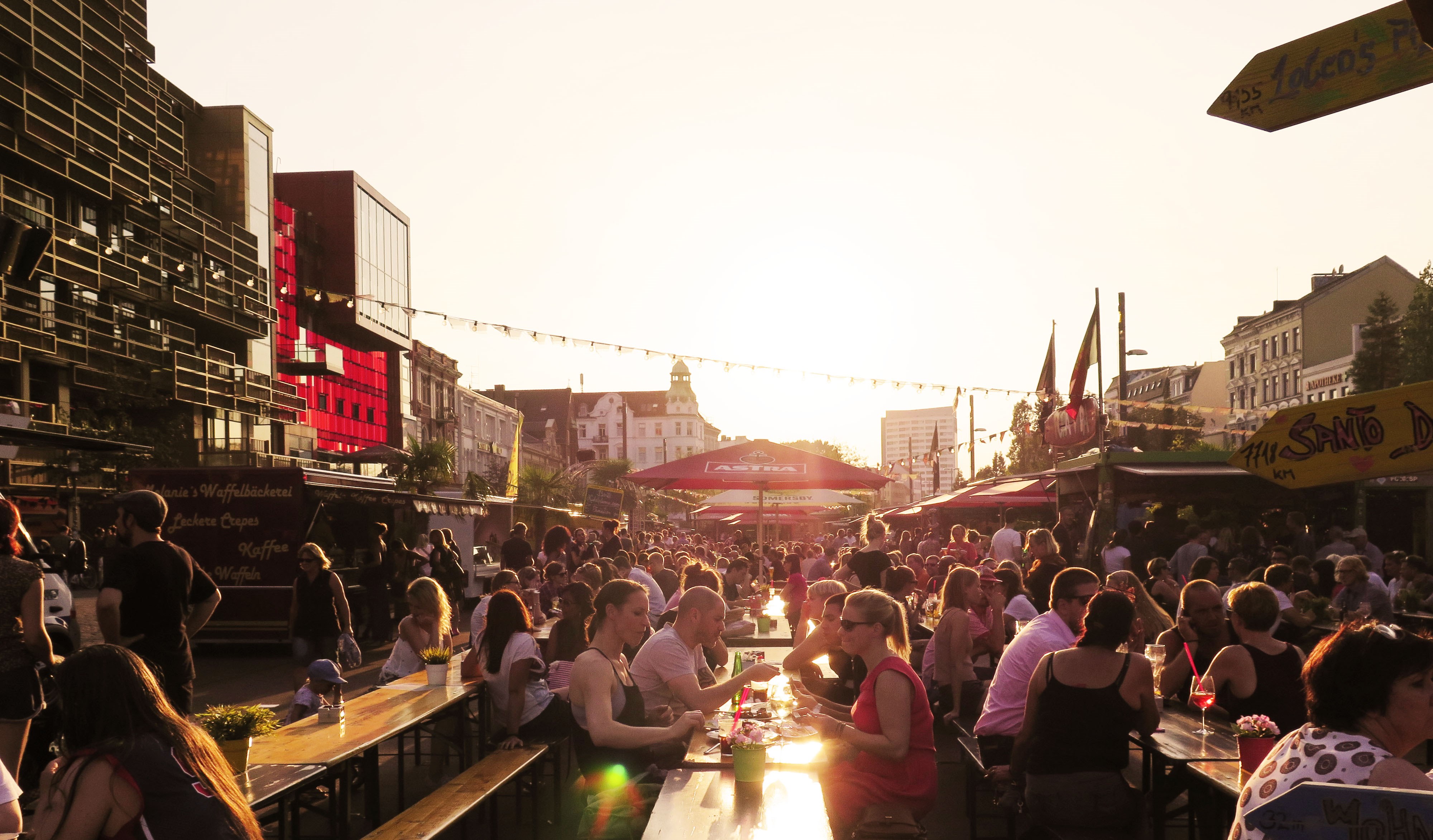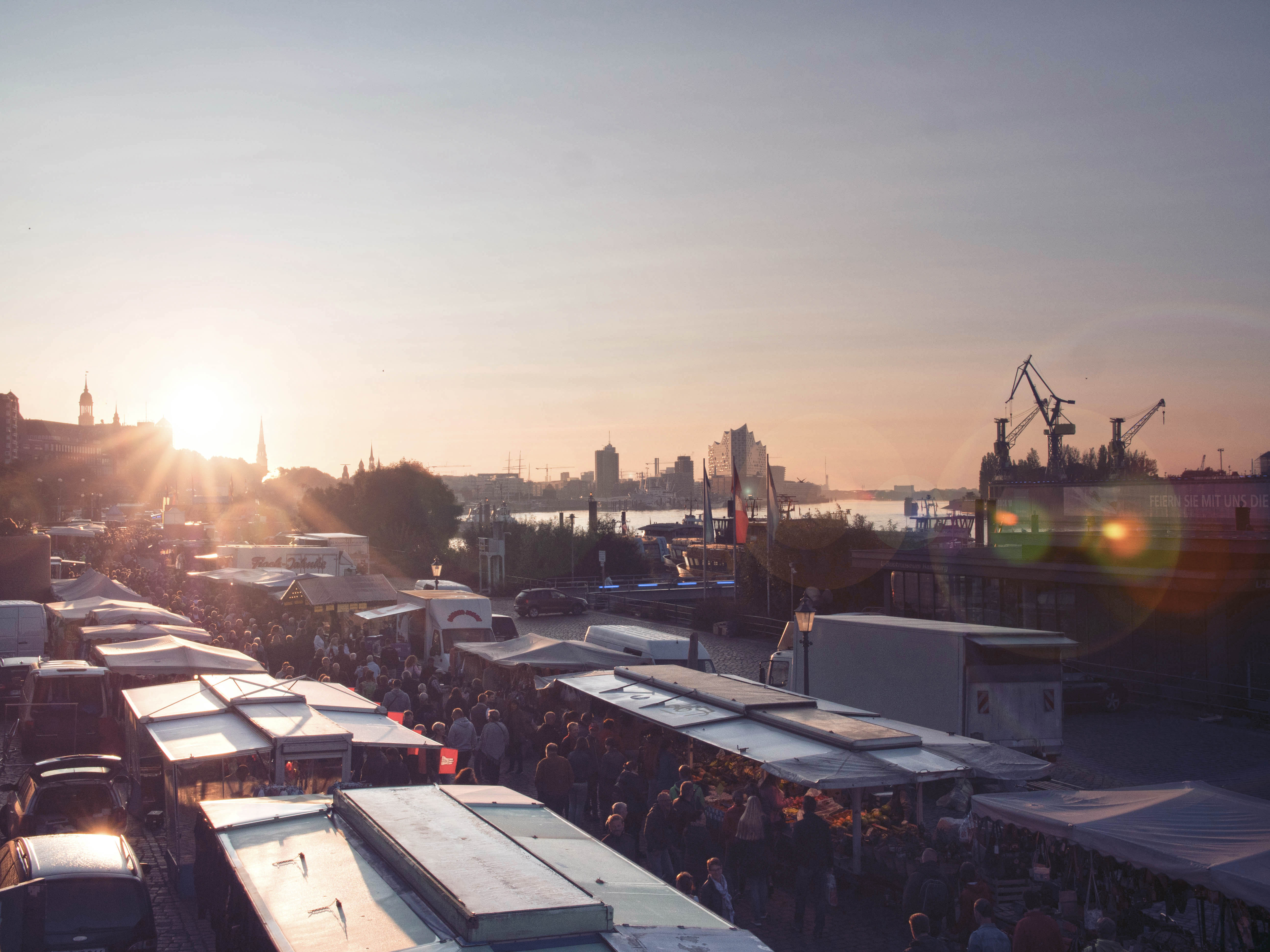_Hamburg_Convention_Bureau_GmbH-700x468.jpg)
Breaking Travel News investigates: Hamburg, Germany
Sitting on the edge of the Hamburg docks, feet dangling over the river Elbe below, it is possible to see the whirring cranes of the famous port in the distance.
Almost completely automated, the facilities are considered some of the most advanced in the industry.
For centuries the location has been the lifeblood of the city, acting as a gateway to the world.
But, even following significant investment, the port is still falling behind those of Rotterdam and Antwerp, its position more than 100 miles in land limiting access to the very largest ships.
In response, the city has been seeking to reposition itself over the past few years, developing its tourism sector.
While the new Elbphilharmonie concert hall has been making the headlines, the building is part of a wider effort from local authorities to diversify away from maritime trade.
To a large extent these efforts have been successful, with the number of overnight stays increasing by 87 per cent in the decade to 2017.
Last year some 6.8 million visitors spent 13.8 million nights in the 396 commercial accommodation businesses in Hamburg, with an average length of stay of two days.
Foreign demand has grown by 124 per cent over the past decade, with nearly a quarter of arriving guests now travelling internationally.
Visitors have long come for the theatre, with Hamburg claiming to trail only London and New York in terms of the diversity on offer.
While that might be a little overoptimistic, walking the streets of the city it is impossible to miss the dozens of productions on offer on stages large and small.
More recently, however, it has been the culinary scene that has been attracting interest, with the city developing something of a reputation as a foodie paradise.
In the way it took Britain years to shed its reputation for terrible cuisine, the north German city has been working tirelessly to recalibrate impressions of cooking in the country.
There are hundreds of restaurants dotted across the city, offering everything from traditional lobscouse, eel soup and kümmel schnapps to more contemporary European and international fare.

The Elbphilharmonie concert hall has rejuvenated tourism in Hamburg
Hamburg, like many cities, is strung along the river, with wealth concentrated in the west and the more creative classes spreading eastward.
As a result, some of the more exciting restaurants can be found in the poorer parts of town.
Dulf’s Burger is a good example, serving buns stacked five high with burgers to a mixture of locals and tourists.
Packed early on a weekday afternoon – always a good sign – the restaurant is not afraid to serve its meat pink and bloody, while the cocktails certainly add to the convivial atmosphere.
Being a port city, fish is obviously a huge part of the local diet.
Just around the corner is Underdocks which serves blackfish rolls, ceviche and black tiger tacos in an informal space.
Under the watchful gaze of a surprisingly hip looking sea captain painted on the wall, patrons enjoy a quick lunch or a longer afternoon catch-up with friends.
The nearby Karo Fisch caters to a slightly more discerning palate.
Hamburg has always prided itself on its radicalism and remains a hotbed of political activism to this day.
But at the same time, it is considered one of the wealthiest cities in Germany, home to major offices for Airbus, Lufthansa and mail-order giant Otto.
Both these worlds collide at Karo Fisch, where well-heeled businessmen can be seen elbow-to-elbow with young activists.
The latter also congregate the Feldstrasse Bunker, a huge WWII flak tower, which is either in the process of being turned into a five-star hotel or community garden depending on who you ask.

Fish is a cornerstone of the Hamburg diet
Every Thursday the Spielbudenplatz holds the Street Food Session.
Hungry travellers can wander among 20 or so food trucks, which change weekly, or take a seat at one of the more permanent cocktail bars which dot the area.
I saw everything from Belgian waffles, paella from Spain and Mexican burritos, to German fish soup being offered, while the Clouds Heaven’s Bar & Kitchen, perched on top of the nearby skyscraper offers a great retreat once you have had your fill.
Now, of course, street food trucks like this can be found almost everywhere, but what makes Hamburg worth a visit is the surrounding St Pauli area.
As a port, Hamburg has a long and salacious history and this legacy endures.
Focused on the Reeperbahn, essentially a mile-long stretch of dive bars, brothels, clubs and cheap restaurants, visitors can find the real soul of the city here and a visit is essential for anybody passing through.
At one end is Beatles-Platz, a decorated square paying homage to the time the famous band spent honing their craft in Hamburg.
A little dicey at night, the area is either a gritty realisation of everything that makes the city great, or utterly terrifying, depending on temperament.

Fine dining at the Spielbudenplatz on the Reeperbahn
Of course, as a wealthy city, there are also many luxurious fine dining establishments in Hamburg, including the Oberhafen-Kantine.
Situated in a tiny cottage, which looms toward you like the tower of Pisa, the eatery is a taste of traditional Hamburg.
For decades, local chef Anita Haendel welcomed visitors here with her home cooking.
After her death several new incarnations for the building were tried, before Tim Seidel and Sebastian Libbert decided to take over and revive the original recipes.
Today that means everything is homemade and freshly cooked, with meatballs hand pressed and cabbages freshly chopped, while the drinks are plentiful – a real kooky location away from the beaten track.
With sea-levels rising Hamburg is currently in the midst of strengthening its defences.
New walls are being build throughout the centre of town, creating new promenades for tourists to enjoy at the same time.
In the centre of the developments sits Tasquinha Galego, located in a historic tower.
Serving traditional Portuguese cuisine, it is something of an outlier for the city, but well worth checking out.

The famous Fish Market is the highlight of any trip to Hamburg
Now, any visit to Hamburg would not be complete without a visit to the famous Fish Market.
Depending on whether you have been up all night or are making an early start, the century old building is a great place to spend Sunday morning.
Revellers, eagle-eyed shoppers, traders and everybody inbetween (I saw at least one bride in her wedding gown during my visit) comes together in what is essentially a giant afterparty for the whole city.
There are a few tourists taking pictures, but it’s mainly those still out celebrating – the queues for coffee and beer are equal in length.
Live bands keep spirits up with rock and jazz music, while those looking for sustenance after a night of excess can pick up hearty fish sandwiches for the journey home.
Keep an eye out, too, for Franzbrötchen - a small, sweet pastry, baked with cinnamon.
Supposedly developed when French troops under Napoleon conquered Hamburg in the early seventeenth century and demanded croissants, it is a German take on the classic French dish.
Whatever the true story of its origins, it has become an icon of the city.
Beautiful views across the harbour make the Fish Market the perfect place to end any trip to Hamburg.

More Information
With its flair and maritime charm, Hamburg is one of the most beautiful cities in Germany.
The port city on the Elbe offers its visitors city life pure and simple, with unique experiences in shopping, culture as well as nature.
Find out more on the official German National Tourist Board website.
Chris O’Toole

